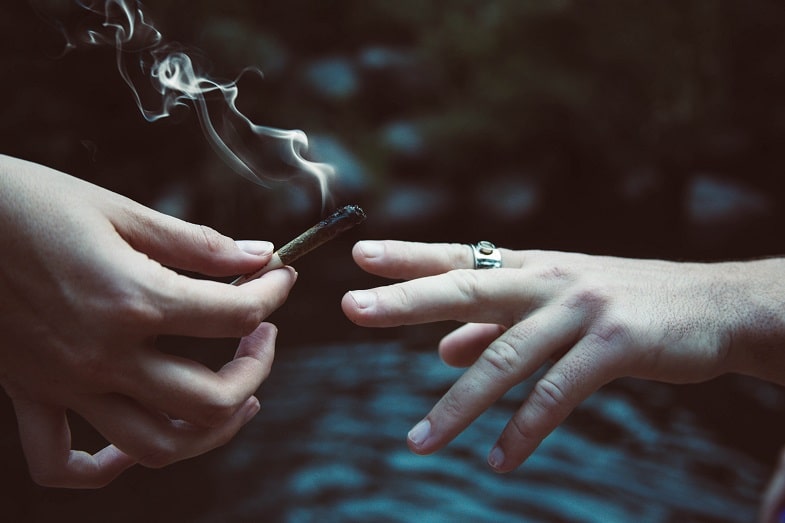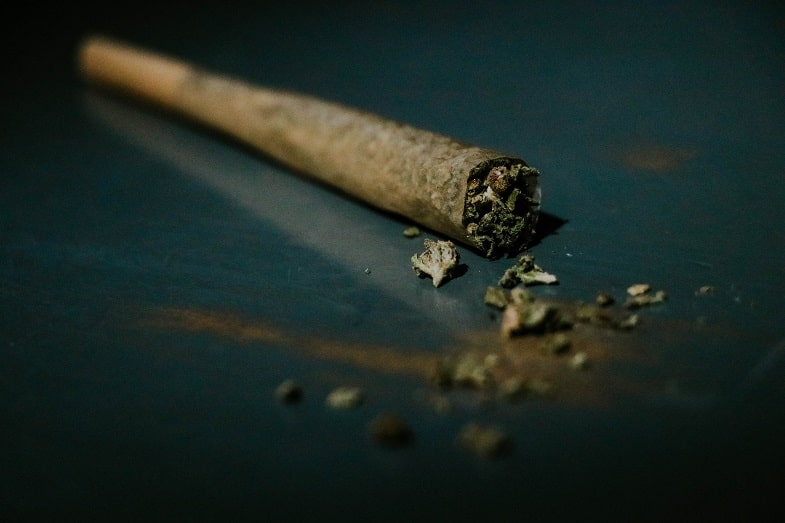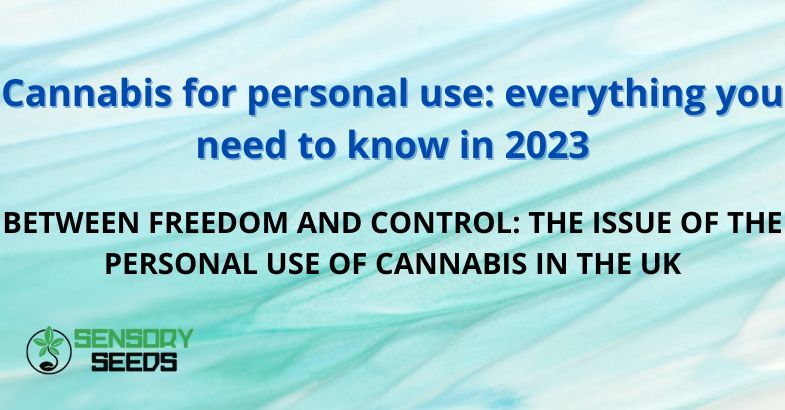Published on: 31/10/2023
BETWEEN FREEDOM AND CONTROL: THE ISSUE OF THE PERSONAL USE OF CANNABIS IN THE UK
The issue of the personal use of cannabis has long been at the center of public debate in the UK, a topic that unites and divides, involving issues of individual freedom, public health and social security. This argument has often highlighted the importance of balancing the right of individuals to make personal choices with the need to protect society from potential harm.
Over the years, UK laws have attempted to navigate these complex waters. Sometimes granting freedom, a direction in which the laws that have allowed the buying and selling of legal hemp and cannabis seeds are going. Other times by narrowing the links.
This article aims to explore in depth UK’s historical oscillation between permissiveness and restriction, with particular attention to the regulatory evolution linked to the personal use of cannabis in the country.
The current state of UK legislation on cannabis
The history of cannabis regulation in the UK is complex and has undergone notable changes over the years.
Originally, this plant was grown freely in many UK regions and was used for a variety of purposes, especially in the production of fabrics. However, starting from the first half of the 20th century, due to the influence of international conventions and, primarily, the prohibitionist policy originating in the USA, our country began to restrict its laws on cannabis.
In the 1960s and 1970s, in response to growing drug problems in Europe and North America, the UK adopted strict laws against the production, sale and consumption of cannabis.
This is a legislation also known as the Consolidated Law on Narcotics which, in fact, equated cannabis with other dangerous substances such as heroin and cocaine, distinguishing between the two categories only in relation to the severity of the penalties, but considering both cases as crimes in all respects.
But national law also saw initiatives in the opposite direction, such that one which abolished the distinction between soft and hard drugs, therefore between substances such as cannabis and other drugs that were decidedly more fearsome for public health. Furthermore, this law was branded illegitimate.
However, through ups and downs, the growing global acceptance of the medical and recreational use of cannabis and pressure from activists and some sectors of society have pushed the legislator to gradually change direction. And this is how we arrived at the legalization of the plant for medical use, possible however only by following a protocol well defined by law, and then experiencing a historic moment in 2016 when light hemp, with low content of THC.
Despite these reforms, the legal situation of cannabis in the UK remains a topic of intense debate, with judicial decisions and laws continuing to evolve. A situation in which citizens often feel lost, especially in relation to the legal status of personal use of the substance.
Read also: The best cannabis seeds in 2023: discover the top strains


What is meant by ‘personal use’?
It is important to clarify what is meant by ‘personal use’. Because this terminology is so vague that it can say everything and nothing.
Well, it was the Court of Cassation that tried to define guidelines to distinguish this case study from others. And it did so on several occasions in which it found itself examining certain sentences relating to the judgment of individuals found in possession of cannabis.
In 2021, for example, the highest body of justice established that small-scale cultivation activities carried out domestically which, due to the rudimentary techniques used, must be “considered excluded, as they do not fall within the scope of application of the criminal law”. the small number of plants, the very modest quantity of product obtainable, the lack of further indications of their inclusion in the narcotics market, appear intended exclusively for personal use”.
In other words, summarizing the Court’s reasoning, personal use occurs when:
cultivation is carried out domestically and involves a negligible number of plants;
the illicit activity is carried out with rudimentary techniques, for example in the absence of fertilizers and tools that facilitate the growth of plants;
from the latter it is possible to obtain only small quantities of narcotic substances;
there are no elements that could indicate a desire to sell the product to third parties. Some examples are knives and sachets for dosing the substance, scales, etc.
Similar considerations were made by the Court of Cassation on other cases that emerged in subsequent years, in which the justice body often configured personal use in the presence of small-sized crops.
Personal use and administrative sanctions
Now, the justice system’s search for factors that would distinguish the personal use of cannabis from cultivation and possession for the purpose of dealing is linked to the fact that the first case is considered an administrative offence, while the second is a full-fledged crime.
And here, in practical terms, is how this distinction materializes in terms of legal sanctions.
Personal use is punished with the suspension of certain documents, or the impossibility of obtaining them if the culprit is not in possession of them, including:
the passport;
driving license suspended for a maximum of 3 years;
any possession of weapons;
the residence permit.
In addition, the Prefect responsible for the territory in which the offense occurred has the power to summon the person in question for an interview in order to establish whether to impose further sanctions. If the interested party does not show up for the interview, these sanctions are applied automatically.
It is important to highlight that in this phase the attitude of the perpetrator takes on central importance. In particular, if he is cooperative and clearly shows a desire not to repeat his illicit behavior, the Prefect may decide to verbally warn him not to use drugs again without further consequences.
If, however, the risk is detected that the individual will continue in his conduct, he may be asked to follow a path of recovery from drug addiction.
These are the penalties for dealing cannabis
Contrary to what was said previously, when dealing with the cultivation and possession of narcotics for the purpose of dealing, a crime in all respects, the penalties established by article 73 of the Consolidated Drug Act are as follows:
payment of a fine which can range from 26,000 to 260,000 euros;
imprisonment from 6 to 20 years.
To be precise, these penalties concern drugs included in Table I of the TU, hard drugs such as cocaine and heroin. Cannabis, however, falls within Table II of the legislation in question and, based on the provisions of the law, the penalties relating to these ‘light’ substances have decreased by a third to a half compared to what was indicated above.
Read also: Guide to germinating cannabis seeds
New bill: how the legislation on the personal use of cannabis could change
So far we have described the current regulatory status of growing and possessing cannabis for personal use. In this paragraph we wish to briefly expose a legislative initiative that could revolutionize this area.
The House Justice Committee recently approved a bill that aims to modify the regulations on cannabis and allow its domestic cultivation for personal use.
But what exactly does the proposed law provide? Let’s see it in summary.
Home cultivation for personal use
The most innovative and controversial point of the bill is that relating to home cultivation for personal use. In particular, the bill establishes that “adults are permitted to cultivate and possess for personal use no more than four female cannabis plants, suitable and aimed at the production of narcotic substances and the product obtained from them”.
The objective is to guarantee the right to self-determination of responsible and aware consumers, who want to avoid the risks deriving from the illegal market and the uncertain quality of the substance purchased. Furthermore, we want to encourage those who use this plant for therapeutic purposes, waiting for greater accessibility and availability of medical cannabis-based products, which are still difficult to obtain and very expensive.
Finally, it is hoped to reduce the workload of the judiciary and the police, who often have to deal with minor cases of little social importance.
In conclusion
The regulatory history of cannabis in the UK has gone through several phases, oscillating between severe restrictions and moments of greater permissiveness. What clearly emerges is the continuous evolution and adaptation of laws to the changing needs of society and the growing awareness of the role that this plant has taken on, both from a medical and social point of view.
Personal use, in particular, has always been at the center of the debate. The difficulty of establishing clear and irrefutable boundaries between drug dealing and drug dealing has created many challenges for the UK judicial system.
The Court of Cassation has repeatedly attempted to provide clear guidelines to determine what exactly constitutes personal use, focusing attention on aspects such as the number of plants, cultivation techniques and the quantity of product obtainable.
But the real news could come from the proposed law which aims to allow the domestic cultivation for personal use of a maximum of four female plants. This step would represent a significant turning point, reflecting legislative trends in many European countries and outside the EU and recognizing consumers’ right to self-determination.
We will await any developments in this regard to observe how the legislation on the matter evolves. Until that moment, we reiterate that the cultivation of cannabis for personal use is still considered illicit and that the marijuana seeds that you can find on our Sensoryseeds shop are exclusively collectible products, therefore not usable for the cultivation of the plant itself.


TAKEAWAYS ON CANNABIS FOR PERSONAL USE
The issue of personal use of cannabis in the UK is a topic that involves several issues, including individual freedom, public health and social security. The debate highlighted the need to find a balance between people’s right to make personal choices and the protection of society from potential risks.
Over the years, UK cannabis laws have gone through various phases, oscillating between moments of permissiveness and restrictions. This reflects the adaptation of regulations to the changing needs of society and the evolution of medical and social knowledge about the substance.
The distinction between personal use and dealing has been the subject of debate and confusion. The UK Court of Cassation has attempted to establish clear guidelines, focusing on factors such as the number of plants grown, the techniques used and the quantity of substance obtainable. In 2021, the Court ruled that personal use occurs when cultivation is done domestically, involves few plants, produces low quantities of substance and lacks evidence of commercialization.
Currently, personal use of cannabis in the UK is punished with administrative sanctions, such as the suspension of documents such as driving licenses and passports. The Prefect can decide further sanctions based on the attitude of the offender, including the path to recovery from drug addiction.
A bill recently approved by the House Justice Committee could lead to significant changes in the UK cannabis legislation. This proposal aims to allow the home cultivation of up to four cannabis plants for personal use, to promote the self-determination of responsible consumers and reduce legal and law enforcement workload. This could represent a significant step towards greater permissiveness in the regulation of cannabis in the UK.
FAQ ON CANNABIS FOR PERSONAL USE
What is the regulatory history of cannabis in the UK?
The regulatory history of cannabis in the UK has gone through several phases, oscillating between severe restrictions and moments of greater permissiveness. Originally cultivated freely, during the 20th century the UK laws became more restrictive due to international conventions and prohibitionist policies.
What are the penalties for personal use of cannabis?
The personal use of cannabis is considered an administrative offense in the UK. Penalties may include the suspension of documents such as passport and driving license. The Prefect can summon the person for an interview and drug addiction recovery courses may be requested.
What could be the future developments of cannabis legislation in the UK?
Future developments in cannabis legislation in the UK could be influenced by international legislative trends and the growing acceptance of the medical and recreational use of the plant. A recent bill aims to allow home cultivation of cannabis for personal use.









